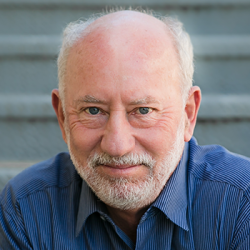
We’re back in the Napa Valley and excitement is in the air – along with a bit of the usual morning fog, soon to burn off to become a warm sunny day! Around 500 participants are here at American Canyon High School for the pre-conference day of PBL World 2019. The main event begins tomorrow, when we’ll be joined by almost 1000 more educators from all across the U.S. plus a dozen other nations.
Over the next three days, look for a daily blog post by Suzie Boss about the keynote speeches on Tuesday by Jaqueline Perez, on Wednesday by Pedro Noguera, and on Thursday by our PBL Champion award recipient Ron Berger.
Also stay in touch with the goings-on and ideas being shared at the event on Twitter at #PBLWorld19.

What Questions Do PBL Teachers Ask?
Speaking of Suzie Boss, the author of our book Project Based Teaching delivered this morning’s keynote whose main theme was, “What questions do PBL teachers ask?”. She discussed five of these questions and offered some thoughts on how beginning PBL teachers think about them, connecting to the seven Project Based Teaching Practices described in her book. She also talked about how teachers go deeper in exploring these questions as they gain more experience with PBL over time. I’ve paraphrased her comments below:
1. Am I doing it right?
Teachers can be tough on themselves… You have get comfortable with showing your sketch… Planning with colleagues helps make the first design and plan process easier… As does looking at existing project examples, to connect them to what you already know about good teaching.
2. When will we have time for PBL?
Many teachers are worried about their students’ test scores and wonder about whether PBL will hurt them… PBL teachers make a tight connection to content standards, embedded in projects… Students get better at doing PBL over time, which buys you some time in terms of the process, so you have time to teach the standards.
3. Are my students ready for PBL?
I sometimes challenge teachers who say, “My students aren’t ready – they’re too young, too low-skilled, unable to work in teams” -- so when are they going to be ready? How can you get them there?
4. What if I don’t know all the answers?
Students may go down a road you have not traveled… Embrace those moments, it’s OK not to know everything… Engage experts to work with your students… Students can also be sources of expertise and learn from each other.

5. How can we go bigger in our next project?
Going bigger might be with what students learn – going deeper in the academic content… Or bigger in terms of who students take their project to – a bigger stage for their public product… Or include more authentic community partners... Or solve real-world problems in a big way (followed by the story of students raising a million dollars for a cause!).
More to Come!
I’m off to visit today’s workshops – PBL Slices and PBL+ sessions, the latter being new features for PBL World this year. They’re in-depth, on specialized topics in PBL, and conducted by our National Faculty, based on their expertise and passions. Check out these topics – they sound fascinating and are sure to add more helpful tools to our participants’ PBL toolboxes.
Tomorrow is the big day when the main workshops begin, along with those always-wonderful keynotes, so stay tuned!

